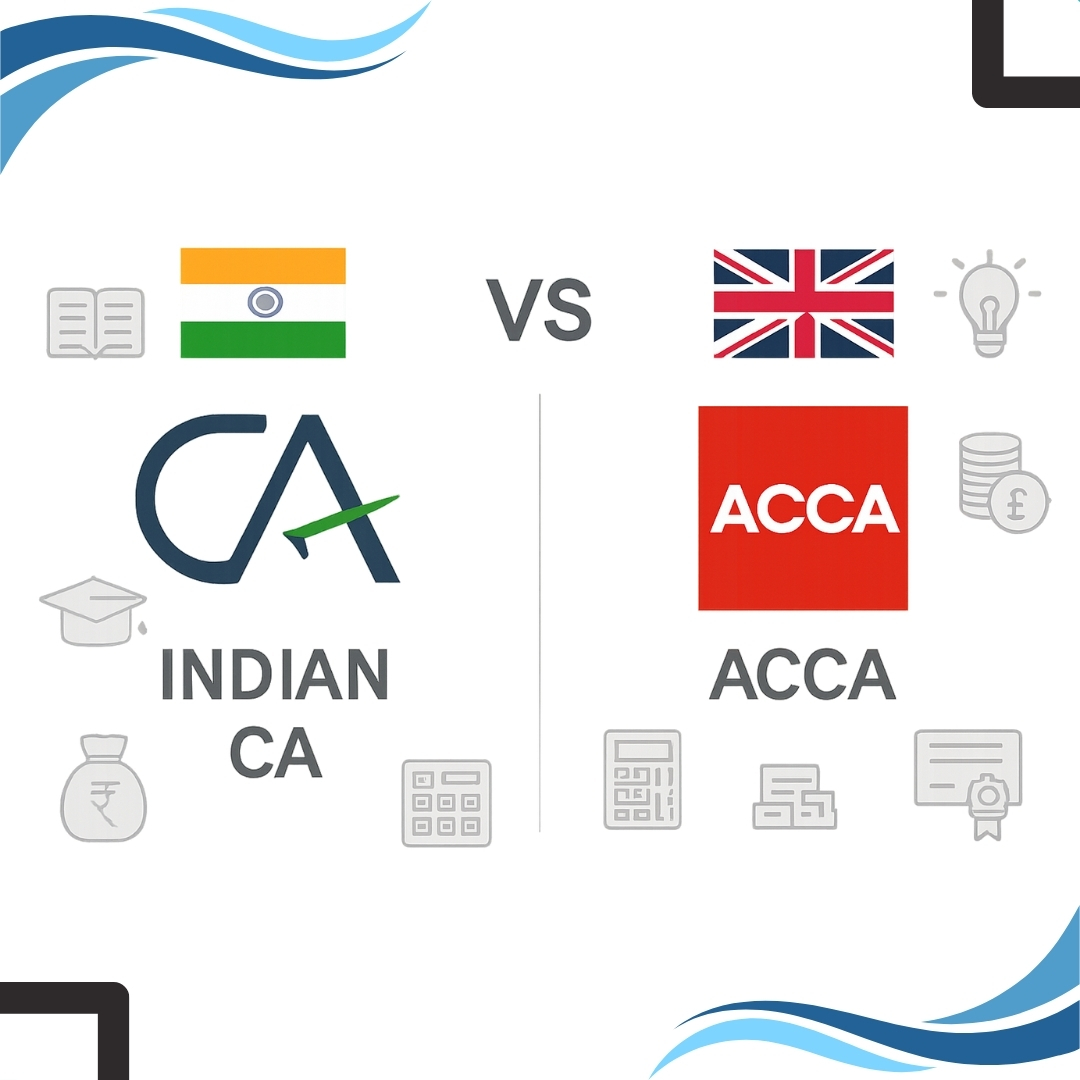ACCA vs Indian CA
ACCA and CA are two highly respected professional options in the field of accounts and finance. While both courses cover similar syllabus material, there are several key differences to consider when deciding between the two.
Chartered Accountant (CA) Degree
Chartered Accountants are highly respected and responsible professionals who are the only authorized individuals to audit financial statements in India. The CA course is administered by the Institute of Chartered Accountants of India (ICAI) and offers rewarding career opportunities. To become a Chartered Accountant, one must have excellent analytical skills and be proficient with numbers.
It is worth noting that the CA course is designed specifically for the Indian market and only recognized in a few countries apart from India. Demand for Chartered Accountants has increased significantly in recent years due to new laws in India and is set to continue growing in the next 5-10 years.
Association of Chartered Certified Accountants (ACCA) Degree
Meanwhile, ACCA, or the Association of Chartered Certified Accountants, is a London-based organization that focuses on accounting and finance. The ACCA course has global recognition in 180 countries, particularly in the UK and European countries. Upon completing ACCA, individuals can join a chartered firm or build a successful career as a finance professional in these countries.
Taking the ACCA course opens up opportunities to work with international and national companies handling overseas clients.
Key Differences between ACCA and Indian CA
- Level of recognition of the degree – ACCA is a globally recognised degree, while CA is a nationally recognised degree. This means that ACCA is recognized in a wider range of countries, including the UK, Hong Kong, and others, while CA is primarily recognized in India.
- Salary – The average salary of a CA in India is around INR 8-9 lakhs per annum, while the ACCA is paid an average salary of INR 6-7 lakhs per annum. However, ACCA offers more global career opportunities and may be a better choice for those looking to work outside India.
- Course Structure – The CA course is divided into three levels: foundation, intermediate, and final. The foundation course consists of four papers, while the intermediate and final exams each consist of eight papers.
- ACCA also has three levels – Knowledge level (3 papers), Skill level (6 papers) and Professional (4 papers). One major advantage of ACCA is that candidates can take individual papers and just need to score 50% marks in each paper to pass. This means that if a candidate doesn’t pass one paper, they only have to retake that specific paper rather than the entire group, as is the case with the Indian CA.
- Fees – The total CA course fee costs around INR 2-3 lakhs per annum, while the ACCA total fees range between INR 3-4 lakhs.
- Duration – the Indian CA course takes four to five years to complete, while ACCA can be completed in two to three years. This means that ACCA allows candidates to enter the workforce faster. Indian CA exams are held twice a year in May and November, while ACCA exams are held every quarter, giving candidates more opportunities to take the exam.
- Pass Percentage – It’s another crucial factor to consider when deciding between ACCA and the Indian CA. Indian CA has a lower pass rate of 8-10%, while ACCA has a higher pass rate of 50-60%. This is a significant difference between the two courses and something to bear in mind when making your decision.
- Scope – Finally, both ACCA and CA have a good scope in India. It is important for individuals to carefully consider all of these factors before making a decision. If you are considering a career in accounts and finance, both ACCA and CA are excellent options to consider. ACCA offers a wider range of global career opportunities and a higher pass rate, while CAs can expect higher salaries in India.
If you are choosing between ACCA and CA, it is necessary to consider your personal goals and priorities. If you are drawn to the idea of working abroad or want the flexibility to work in different countries, ACCA may be the right choice. This globally recognised degree is recognised in 180 countries and can open many career opportunities.
On the other hand, if you are primarily interested in working in India and want to focus on the taxation of India, CA may be the better option. This degree is nationally recognized and is designed particularly for the Indian market and offers a wealth of opportunities in the country.
Which course is more challenging?
The CA course is generally considered more challenging than the ACCA course due to the low passing percentage, rigorous curriculum, and diverse subject matter. The passing rate for the CA course is relatively low, making it difficult to complete. As a result, many students have to take multiple attempts to pass the exams, which also increases the course duration.
While the ACCA course is not necessarily easier, students can receive exemptions based on their prior educational qualifications. Additionally, if a student fails a subject in ACCA, they can retake that specific subject rather than having to retake all subjects, as is the case with the CA course.
Another advantage of completing ACCA along with CA is that it can give you preference in top CA firms in India and increase your chances of selection. It is worth noting that both courses require hard work and dedication to succeed.
Ultimately, choosing between ACCA and CA will depend on your personal goals and priorities. You must carefully consider all the factors outlined above and do your own research before making a decision.
Recent posts
Categories
Book Your Personalised Career Consultation Today
Error: Contact form not found.



